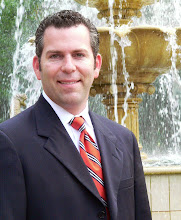Thursday, February 10, 2011
The Truth, a Social Experiment?
I just saw the movie "The Social Network." I liked it, despite some plot pacing problems. But as I watched it, I wondered how much of the story was "true." Mark Suckerberg, the protagonist boy genius who invents "Thefacebook" comes across as socially awkward but focused and brilliant. The movie highlights his relationships with best friend and Facebook Co-founder, Eduardo Saverin, as well as Napster co-founder and Facebook collaborator Sean Parker. It doesn't take long to guess that the actual principals in the story have to be at the best uncomfortable with their portrayals in the movie. And again I wondered, "Is this how it really happened?"
So when I came across a quote from Aaron Sorkin, who wrote the screenplay, I was stunned.
"I don’t want my fidelity to be to the truth; I want it to be to storytelling. What is the big deal about accuracy purely for accuracy’s sake, and can we not have the true be the enemy of the good?"1
I can appreciate storytelling as much as the next guy, and understand dramatic or "artistic license." But to be so cavalier about "the truth," as if the details of our life were just some artist's palette of colors to be blended and blurred for the sake of expression, seemed to go over the line. If one owes "integrity" to "storytelling" rather than "the truth" doesn't this place entertainment as the highest good? Hasn't the medium shaped the message, as McLuhan and Postman et. al. said it would?
What do you think? Does the truth have to suffer in order to tell a story? And can "the true" really be the enemy of the good?
1. ^ Harris, Mark (September 17, 2010). "Inventing Facebook". New York Magazine. Retrieved October 9, 2010.
Subscribe to:
Post Comments (Atom)






1 comment:
Thanks for the post. Aaron Sorkin made it out as though he is forced to make the choice between writing a good story or writing a true story. This leads me to believe that the real issue is not about good storytelling but what story will make the most money. The world is filled with good stories that you don't need to be dishonest in their portrayal. Nice rationalizing, Aaron.
Post a Comment